- 05 Mayıs 2025 - -YENİ- TOPRAK OLMAYI İSTEMEK!
- 28 Nisan 2025 - YA 3 TLİ (TESPİT-TENKİT-TEKLİF) KONUŞUN, YA DA EBEDİYEN SUSUN!
- 22 Nisan 2025 - ÖLÜMDEN KİM/NİÇİN KORKAR?
- 14 Nisan 2025 - -YENİ- HER KİTABIN ANLAŞILMA REHBERİ TEK BİR KİTAPTIR.
- 10 Nisan 2025 - ZAMAN VE MEKÂNA BAKIŞIMIZ
- 07 Nisan 2025 - KİME KONUŞUYORUZ/YAZIYORUZ?
- 25 Mart 2025 - İYİ FİNAL/YAŞLILIK İÇİN
- 17 Mart 2025 - MİLLİ BİRLİK VE BERABERLİĞİMİZİN 5 KİLOMETRE TAŞI
- 10 Mart 2025 - NEYİ ÇEKİYORSUNUZ? (Rezonans-Çekim Yasası)
- 03 Mart 2025 - ŞEYTANI NE DAVET EDER?
- 24 Şubat 2025 - ŞANLI DEVRİMİ DUYDUNUZ MU?
- 17 Şubat 2025 - -YENİ- AİLE YILINDA KAMU-STK DENGESİ (AİLE VAKFI ÖNERİSİ)
- 10 Şubat 2025 - MİKROFONLA EZAN OKUNURKEN SAĞA/SOLA DÖNÜLÜR MÜ?
- 04 Şubat 2025 - YILDIZ MI, AY MI, KARA DELİK MİSİNİZ?
- 27 Ocak 2025 - FELAKETLERİN İLK ADIMI SUÇLUNUN MASA İLAN EDİLMESİYDİ
- 20 Ocak 2025 - ÜZÜMÜN SAPI, ARMUDUN ÇÖPÜ, MUZUN KABUĞU YENİR Mİ?
- 13 Ocak 2025 - BİZİ KİM DAHA İYİ YIKAR? SU MU, ATEŞ Mİ?
- 07 Ocak 2025 - KAN BAĞIŞI MI? HACAMAT MI?
- 30 Aralık 2024 - KAVGALARIN ASIL SEBEBİ NEDİR?
- 25 Aralık 2024 - VER KORKUYU DEĞİL; VER COŞKUYU
- 17 Aralık 2024 - İMAN-HİKMET-GAYRET-TEVEKKÜL
- 09 Aralık 2024 - ZITLIKLARIN ORTASINDA VASATI BULMAK
- 02 Aralık 2024 - MECELLE PUSULASI (ALTIN FORMÜL İÇERİR)
- 25 Kasım 2024 - ZAHMETTEN KAÇARAK RAHMETE ULAŞILABİLİR Mİ?
- 18 Kasım 2024 - HAK YOK VAZİFE VAR; FERT YOK CEMİYET VAR.
- 11 Kasım 2024 - POLİMAT-ENTELEKTÜEL
- 04 Kasım 2024 - ÖNCE DONANIM (HARDWARE) SONRA YAZILIM (SOFTWARE)
- 28 Ekim 2024 - İBRETLİK BİR ÖLÜMDEN DERS ÇIKARABİLMEK (FETÖ GERÇEĞİ)
- 21 Ekim 2024 - YAŞLANMA SÜREÇ ODAKLI BİR GELİŞMEDİR VE ANNE KARNINDAN BAŞLAR.
- 15 Ekim 2024 - ÜÇÜ BİRLEYEBİLİR MİYİZ? (Türkçülük/İslamcılık/Batıcılık)
- 07 Ekim 2024 - BEYİN-BEYİNCİK-VİCDAN=YASAMA-YÜRÜTME-YARGI
- 30 Eylül 2024 - GEÇMEK Mİ, KALMAK MI?
- 23 Eylül 2024 - METAFOR (MESNEVİ/KABAK METAFORU)
- 10 Eylül 2024 - İDDİALAR VE HIRSLARIMIZIN KUŞATTIĞI HAYATLARIMIZ
- 03 Eylül 2024 - KİTAP VE SİLAH DENGESİ
- 21 Ağustos 2024 - GÖZ BEBEĞİMİZ OLAN DOSTLARIMIZ (!)
- 12 Ağustos 2024 - ÖNCELİKLİ KAYGILARIMIZ
- 06 Ağustos 2024 - SEVGİ-ACI-HZ. İNSAN
- 29 Temmuz 2024 - İNİŞ-ÇIKIŞ-KONFOR
- 22 Temmuz 2024 - GENÇLİĞİN GÜNDEMİNDEKİ KONULARA DAİR: SORU/CEVAP
- 15 Temmuz 2024 - KAPAĞINIZ/DUDAĞINIZ KAPALI MI?
- 09 Temmuz 2024 - SÜLEYMANLAR AYAKTA ÖLÜR.
- 05 Temmuz 2024 - EVLİLİK YAŞI İÇİN 5 N 1 K (HZ. AİŞE ÖRNEĞİ ÜZERİNDEN)
- 25 Haziran 2024 - İNSAN HAYATA NEREDEN BAŞLAMALI ?
- 12 Haziran 2024 - İNSAN NEDEN ALZHEİMER VE DEMANS OLUR?
- 05 Haziran 2024 - SEVİNİNCE TOPRAĞA, ÜZÜLÜNCE GÖKYÜZÜNE BAK!
- 29 Mayıs 2024 - BİR HİKÂYENİZ VAR MI?
- 23 Mayıs 2024 - EN BÜYÜK SÜRPRİZ BİZİ BEKLİYOR OLABİLİR Mİ?
- 13 Mayıs 2024 - MESLEK LİSESİ Mİ, FEN/ANADOLU LİSESİ Mİ? (MÜFREDAT İÇİN)
- 29 Nisan 2024 - HARDAL TANESİ
- 22 Nisan 2024 - ÖZELEŞTİRİ Mİ / SAVUNMA MI?
- 08 Nisan 2024 - SİYASETTE ADALET Mİ FAYDA MI?
- 03 Nisan 2024 - YAPAMADIĞIMIZ ŞEYİ ALLAHTAN İSTEMEK!
- 26 Mart 2024 - BUEN VİVİR
- 25 Mart 2024 - BAŞROL DE Mİ OYNUYORSUNUZ, YOKSA FİGÜRAN MISINIZ?
- 13 Mart 2024 - NEHİR AKMALI!
- 12 Mart 2024 - NEHİR AKMALI!
- 05 Mart 2024 - SAYGI DUYMAM GEREKEN BU(!) MU?
- 29 Şubat 2024 - DÜNYA VE AHİRETTE UYUYABİLMEK VE UYANABİLMEK
- 22 Şubat 2024 - OMURGA
- 12 Şubat 2024 - AİLE NEDEN İLK DÜŞMANDIR?
- 09 Şubat 2024 - ANNE/BABA/ÖĞRETMEN ACI BİR TEBESSÜM
- 29 Ocak 2024 - DERDİNİN DEVASI SENSİN
- 23 Ocak 2024 - EŞYANIN RUHU
- 15 Ocak 2024 - ALÇAK GÖNÜLLÜ
- 09 Ocak 2024 - NEDEN UZAKLARI YAKIN, YAKINLARI UZAK ETTİK?
- 01 Ocak 2024 - EN BÜYÜK FESAT NEDİR ?
- 25 Aralık 2023 - İKİNDİ NAMAZI VE BENÎ KURAYZA YAHUDİLERİ
- 18 Aralık 2023 - Kütük Çok Sahibi Yok!
- 12 Aralık 2023 - Fix/Takıntı
- 04 Aralık 2023 - Siyaset ve Tefekkür
- 27 Kasım 2023 - Haddini bil, mutlu ol!
- 20 Kasım 2023 - Korona Döneminin Dijital Çocukları
- 14 Kasım 2023 - Sessizliğin Gücü (Meryem, 19/10)
- 07 Kasım 2023 - Çocuğa Sevgi, Gence Güven ve Yaşlıya Saygı
- 16 Ekim 2023 - Pozitiflik, Saf Pozitiflik midir?
- 12 Ekim 2023 - Gülümseme ve Huzur
- 02 Ekim 2023 - Kabz ve Bast
- 20 Eylül 2023 - Bağınız her daim açık mı?
- 13 Eylül 2023 - Nişanlınız Nasıl Güzel Olur?
- 30 Ağustos 2023 - Helalleşme/Sıfırlama(!?) Mümkün mü?
- 22 Ağustos 2023 - Yalanın Negatif ve Pozitifi
- 17 Ağustos 2023 - Ne yığdırın, ne de bağırtın.
- 07 Ağustos 2023 - Kadife Yumruk (Gerçeğin Gücü)
- 03 Ağustos 2023 - Artırılmış Sanal Hayatın Kurbanları
- 23 Temmuz 2023 - Peygamber Kıssaları ve Çocuk Eğitimi
- 18 Temmuz 2023 - Peygamber Kıssaları ve Çocuk Eğitimi
- 03 Temmuz 2023 - Neredesin Hızır?
- 28 Haziran 2023 - Nakıs/Noksanlık/İmtihan
- 14 Haziran 2023 - 5 95den Büyüktür. (Çocuk Eğitimi)
- 06 Haziran 2023 - Aile Mahremiyeti ve Nükleer Enerji
- 29 Mayıs 2023 - Talip Olduklarımıza Dikkat!
- 23 Mayıs 2023 - Liderlere Hüsn-i Hâtime İçin 5 Tavsiye
- 15 Mayıs 2023 - Seferoğulları, Tellioğulları ve Yeşil Vadi
- 08 Mayıs 2023 - Ubasute
- 01 Mayıs 2023 - İşiniz Zor mu?
- 10 Nisan 2023 - Niyet-Düşünce-Söylem-Eylem-Amel-Ahlak
- 03 Nisan 2023 - Her Zaman, Her Şeye Rağmen Kazanmak mı?
- 27 Mart 2023 - Faraziye Hayatlar, Şimdi ve Burası
- 20 Mart 2023 - Kifayetsiz Muhterisler, Dış Güçler ve Türkiye Yüzyılı
- 13 Mart 2023 - Sofradaki Çatal (Vasat-Orta Yol)
- 06 Mart 2023 - Hayat; geriye doğru , ileriye doğru
- 20 Şubat 2023 - Sabır; Boyun Eğmek Değil Mücadele Etmektir.
- 13 Şubat 2023 - Deprem - Kenetlenme - Kader - Tedbir
- 08 Şubat 2023 - Köy/Şehir Gerilimi ve Başıboş Köpekler Sorunu
- 31 Ocak 2023 - Akupunktur-İğnelenme-Eleştiri
- 23 Ocak 2023 - Üç Farklı Rüzgârın Anaforundaki Ülkem
- 17 Ocak 2023 - Mehmetleri Fatih Yapmak İçin
- 09 Ocak 2023 - Mevlana, Konevi ve Urmeviyi Anlamak İçin
- 03 Ocak 2023 - Kadın ve Erkek Eş Değerdir.
- 26 Aralık 2022 - Sema bize ne anlatır?
- 20 Aralık 2022 - Kötülük Genini Çıkarabilir miyiz?
- 12 Aralık 2022 - Kimin Uydusuyuz?
- 05 Aralık 2022 - Sağlıklı Birey-Mutlu Aile-Huzurlu Toplum
- 02 Aralık 2022 - Hak ve Hakikat
- 21 Kasım 2022 - Acı Bir Tebessümle Kayan Yıldızlar
- 15 Kasım 2022 - Aile ve Gençlik Çalıştayı
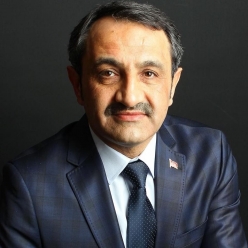
DR. CEMİL PASLI
ANAOKULU MU, ÜNİVERSİTE Mİ? (MÜFREDAT İÇİN)
ANAOKULU MU, ÜNİVERSİTE Mİ? (MÜFREDAT İÇİN)
“Hayatın en önemli dönemi üniversite çalışmaları değil, doğumdan altı yaşa kadar olan süredir. Çünkü bu, bir çocuğun gelecekte olacağı yetişkini inşa ettiği dönemdir. Sadece zekâ değil, insanın bütün mümkün becerileri bu dönemde oluşur. Hiçbir çocuk zekice bir yardıma, bu dönemde olduğu kadar ihtiyaç duymaz.” (Dr. Maria Montessori)
Söz konusu çocuk eğitimi olduğunda beş doksan beşten büyüktür.
İnsan yüz yaşına kadar yaşasa dahi hayatını şekillendirmesi açısından ilk beş yıl sonraki doksan beş yıldan daha önemli ve değerlidir.
Anne karnında başlayan 24 ay annenin yakınlığı, emzirmesi, anne/babanın bol yakın temasla sevgiye, merhamete ve şefkate doyurması ile tamamlanan ilk üç yıllık evdeki anne/baba okulunun devamı 3-7 anaokulları ile devam ettirilmelidir.
Zira insanı bir ömür boyu yönlendiren “kişilik” bu dönemde en az %70 itibariyle şekillenir.
Milli eğitim müfredatı hazırlanırken bu ilkeye dikkat edilmesi hayati önemdedir.
Eğitim için tahsis edilen kaynağın en az üçte birinin anaokulu dönemine tahsisi ülkenin kaderini değiştirecektir.
Anaokulundan sonraki dönemlerde de bütün liseleri tedrici olarak meslek lisesine dönüştürülmelidir.
Böylece eğitim sistemi her çocuğa 18 yaşına geldiğinde koluna bir altın bilezik takmalı onu kabiliyetli olduğu alanda sanatkâr yapmalıdır.
Bol uygulamanın olduğu teorisi verilen her bilginin uygulama ile çıraklık ve kalfalık dönemlerinin öğretmenlerinin rehberliğinde ve takibinde alanda tamamlanması sağlanmalıdır.
Nüfusa bize yakın olan Almanya’da üç milyon civarında üniversite öğrencisi varken bizde bu rakamın sekiz milyonlara ulaşması üzerinde dikkatle durulması gereken bir husustur.
3-7 yaş dönemini kapsayan herkesin ulaşabildiği yaygın anaokulları, o okulların lisans+yüksek lisans ve bol uygulamayla yetişmiş öğretmenleri ve esnek ve dünyadaki başarılı örnekleri kendi değerlerimize uyarlanmış bir müfredat eğitim sisteminin temel üç dinamiği olmalıdır.
Kindergarten or University? (For Curriculum)
“The most important period of life is not university studies, but the period from birth to age six. Because this is the period when a child builds the adult he will become in the future. Not only intelligence, but all possible skills of a person are formed in this period. “No child needs intelligent help more than he does at this time.” (Dr. Maria Montessori)
When it comes to child education, five is greater than ninety-five.
Even if a person lives to be one hundred years old, the first five years are more important and valuable than the next ninety-five years in terms of shaping his life.
The first three years of the mother/father school at home, which begins in the womb with 24 months of closeness of the mother, breastfeeding, and the mother/father's saturation with love, mercy and compassion through abundant close contact, should be continued with kindergartens 3-7.
Because the "personality" that guides a person throughout life is shaped by at least 70% in this period.
It is vital to pay attention to this principle while preparing the national education curriculum.
Allocating at least one third of the resources allocated for education to the kindergarten period will change the fate of the country.
All high schools after kindergarten should be gradually converted into vocational high schools.
Thus, the education system should put a gold bracelet on every child's arm when he turns 18 and make him an artist in the field he is talented in.
It should be ensured that all knowledge given the theory that it has plenty of application is completed in the field under the guidance and follow-up of teachers during the apprenticeship and journeyman periods.
While there are around three million university students in Germany, which has a similar population to ours, this figure has reached eight million in our country, which is an issue that needs to be carefully considered.
Mainstream kindergartens that are accessible to everyone between the ages of 3-7, teachers of those schools with undergraduate and graduate degrees and plenty of practice, and a curriculum that is flexible and adapted to our own values, with successful examples from around the world, should be the three basic dynamics of the education system.

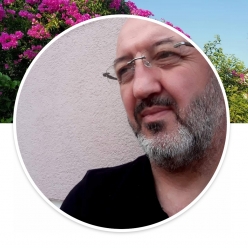
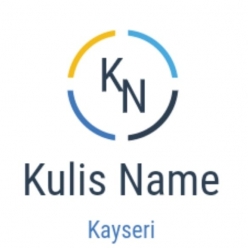


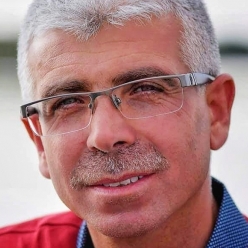


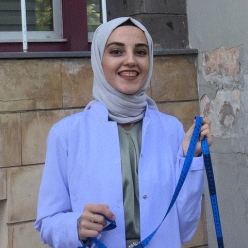
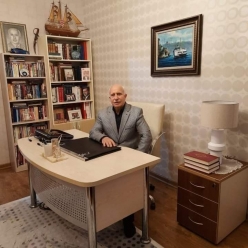

Henüz Yorum yok